PR Agency Industry Survey Reveals Many Surprises
PR Agency Industry Survey Reveals Many Surprises

Here’s the cycle. Young PR agency account executives aspire to greater things. Since the cream always rises to the top, many account executives will go on to become senior managers of their agencies.

They may move around a bit to other agencies aspiring to ever broader responsibilities, job titles and compensation. But the itch to do their own thing grows stronger and a number of these former account executives start their own agencies.
Fast forward. These new owners learn the ropes of running a business in addition to providing PR services to clients. They grow their firms and establish reputable brands. This whole process from the launch of a career in public relations to being in business for oneself may take ten years or so. And the process of starting a new agency and growing it to its present level may take at least another ten to twenty years.
Whew. That’s a lot of clients under the bridge. So now the agency owner is middle aged, has a family, has built some assets and is ready for the next step – which is?
To continue running the business for another ten years, sell the agency and stay on. Or sell the agency and do something else. These are all logical steps and considerations in the life of a typical pr agency owner. But just what is the current prevalent thinking of pr agency owners about the moves they can make and the futures they envision?
My firm, The Stevens Group
, just concluded a survey of more than a hundred pr agency owners. Since our primary business is to facilitate mergers and acquisitions in the pr agency industry we wanted to find out if pr agency owners understand the realities of this marketplace and are capable of making decisions that are right for them.
The survey was conducted of pr agency owners of firms ranging in net fee income from $500,000 to $10 million. Ninety-two per cent of pr agency owners plan to sell their firms at some point and of that number, almost half plan to sell within the next five years.
This is a surprising result. Think of it this way. Of those pr agencies that existed ten years ago did 92 per cent of them sell their firms in the interim? Not at all. In fact, I would venture a guess that a mere 10% of pr firms existing ten years ago actually sold.
Does the current survey tell us that all of those agencies that have been in existence ten years are now for sale? That the owners have thought about it long and hard and now plan to sell? Will there be a glut of pr agencies on the market going forward? There are literally thousands of pr agencies now operating in the U.S. Does this mean that more than a thousand agencies will be for sale?
Can the marketplace absorb this glut? What will this do to the purchase price of such agencies? Will the value of pr agencies go the way of worldwide oil prices?
And are there enough buyers to absorb so many agencies? These are all very valid questions. The answer is that even though some 92 per cent of present agency owners are planning to sell their agencies not all of them will be sold. And this will come as a rude awakening to many pr agency owners who think that by merely putting their agencies on the market that an automatic sale will take place.
Buyers can afford to be more selective. And just as the smart, aggressive, committed pr agency account executive referred to earlier will rise to the top, so will the better run agencies rise to the top of a buyer’s wish list. If a pr agency owner wishes to sell his business there are certain criteria that must accompany that wish. The agency must be reasonably profitable, well run, offer superior services, have high quality senior management, have a stable of reliable accounts and offer niches that are attractive to buyers.
The fact is that pr agencies today not only compete for clients but for marketability of their agencies. Since so many pr agencies will be on the market during the next few years, the agency that wishes to be sufficiently appealing to a buyer must learn what a buyer expects. Such expectations may result in pr agencies totally streamlining their business practices and metrics to be ever more appealing.
The competition to be acquired will become just as fierce as the competition for new clients. But both considerations are equally important to pr agency owners. If you want to sell your agency amidst the rising selling mentality of agency owner then shape it up.
As originally published on CommPRO.biz.
The post PR Agency Industry Survey Reveals Many Surprises
first appeared on The Stevens Group | PR Agency Merger & Acquisition Consultants.

Here’s the cycle. Young PR agency account executives aspire to greater things. Since the cream always rises to the top, many account executives will go on to become senior managers of their agencies.

They may move around a bit to other agencies aspiring to ever broader responsibilities, job titles and compensation. But the itch to do their own thing grows stronger and a number of these former account executives start their own agencies.
Fast forward. These new owners learn the ropes of running a business in addition to providing PR services to clients. They grow their firms and establish reputable brands. This whole process from the launch of a career in public relations to being in business for oneself may take ten years or so. And the process of starting a new agency and growing it to its present level may take at least another ten to twenty years.
Whew. That’s a lot of clients under the bridge. So now the agency owner is middle aged, has a family, has built some assets and is ready for the next step – which is?
To continue running the business for another ten years, sell the agency and stay on. Or sell the agency and do something else. These are all logical steps and considerations in the life of a typical pr agency owner. But just what is the current prevalent thinking of pr agency owners about the moves they can make and the futures they envision?
My firm, The Stevens Group , just concluded a survey of more than a hundred pr agency owners. Since our primary business is to facilitate mergers and acquisitions in the pr agency industry we wanted to find out if pr agency owners understand the realities of this marketplace and are capable of making decisions that are right for them.
The survey was conducted of pr agency owners of firms ranging in net fee income from $500,000 to $10 million. Ninety-two per cent of pr agency owners plan to sell their firms at some point and of that number, almost half plan to sell within the next five years.
This is a surprising result. Think of it this way. Of those pr agencies that existed ten years ago did 92 per cent of them sell their firms in the interim? Not at all. In fact, I would venture a guess that a mere 10% of pr firms existing ten years ago actually sold.
Does the current survey tell us that all of those agencies that have been in existence ten years are now for sale? That the owners have thought about it long and hard and now plan to sell? Will there be a glut of pr agencies on the market going forward? There are literally thousands of pr agencies now operating in the U.S. Does this mean that more than a thousand agencies will be for sale?
Can the marketplace absorb this glut? What will this do to the purchase price of such agencies? Will the value of pr agencies go the way of worldwide oil prices?
And are there enough buyers to absorb so many agencies? These are all very valid questions. The answer is that even though some 92 per cent of present agency owners are planning to sell their agencies not all of them will be sold. And this will come as a rude awakening to many pr agency owners who think that by merely putting their agencies on the market that an automatic sale will take place.
Buyers can afford to be more selective. And just as the smart, aggressive, committed pr agency account executive referred to earlier will rise to the top, so will the better run agencies rise to the top of a buyer’s wish list. If a pr agency owner wishes to sell his business there are certain criteria that must accompany that wish. The agency must be reasonably profitable, well run, offer superior services, have high quality senior management, have a stable of reliable accounts and offer niches that are attractive to buyers.
The fact is that pr agencies today not only compete for clients but for marketability of their agencies. Since so many pr agencies will be on the market during the next few years, the agency that wishes to be sufficiently appealing to a buyer must learn what a buyer expects. Such expectations may result in pr agencies totally streamlining their business practices and metrics to be ever more appealing.
The competition to be acquired will become just as fierce as the competition for new clients. But both considerations are equally important to pr agency owners. If you want to sell your agency amidst the rising selling mentality of agency owner then shape it up.
As originally published on CommPRO.biz.
The post PR Agency Industry Survey Reveals Many Surprises first appeared on The Stevens Group | PR Agency Merger & Acquisition Consultants.
THE STEVENS GROUP NEWS FEED



















